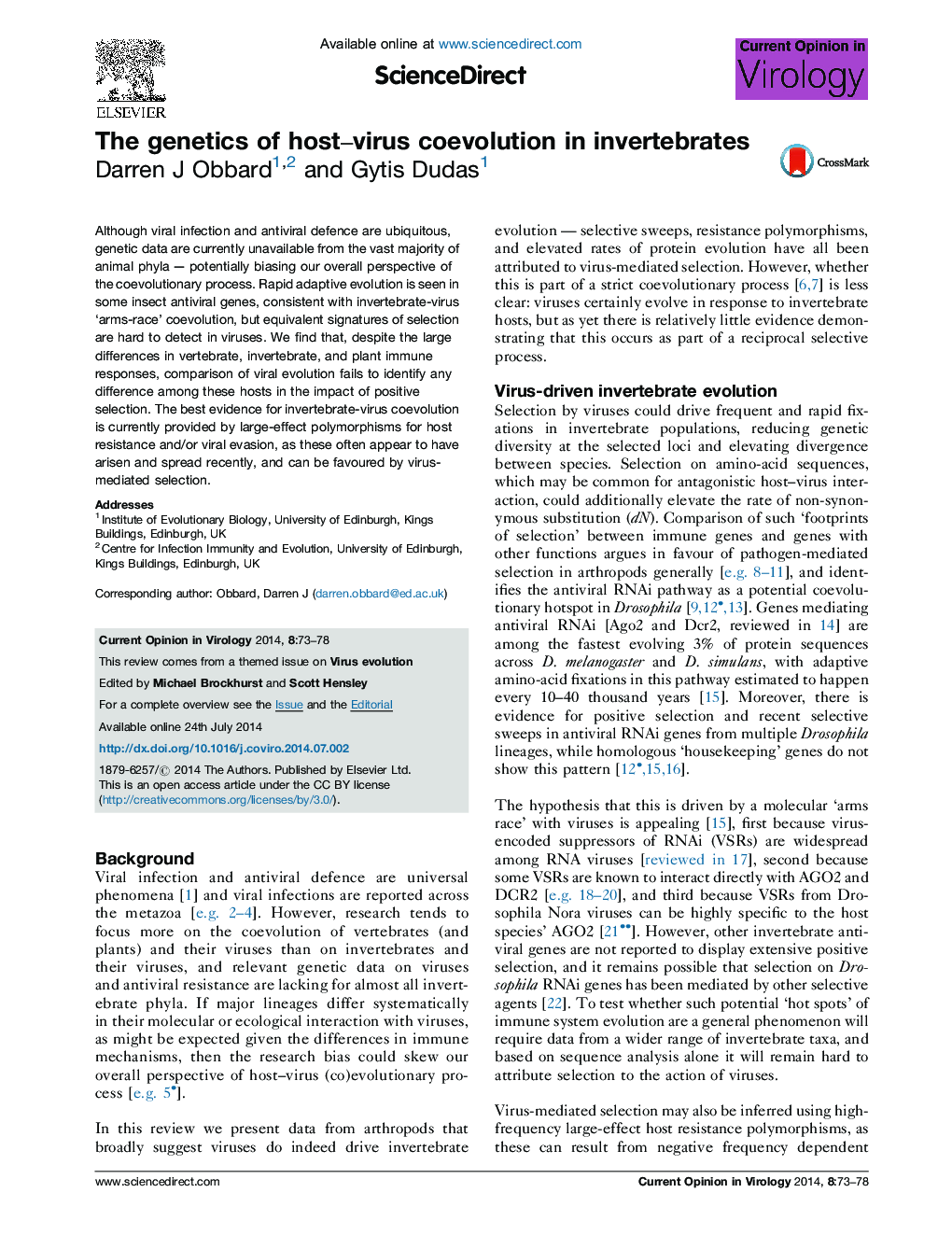| Article ID | Journal | Published Year | Pages | File Type |
|---|---|---|---|---|
| 5806751 | Current Opinion in Virology | 2014 | 6 Pages |
â¢No genetic data are available on viruses or antiviral defence for most animal phyla.â¢The research bias may bias understanding of host-virus coevolution.â¢Antiviral RNAi genes of Drosophila display rapid adaptive evolution.â¢There is no difference between plant, vertebrate, and insect viruses in median dN/dS ratio.â¢High-frequency large-effect segregating polymorphisms provide evidence for coevolution.
Although viral infection and antiviral defence are ubiquitous, genetic data are currently unavailable from the vast majority of animal phyla - potentially biasing our overall perspective of the coevolutionary process. Rapid adaptive evolution is seen in some insect antiviral genes, consistent with invertebrate-virus 'arms-race' coevolution, but equivalent signatures of selection are hard to detect in viruses. We find that, despite the large differences in vertebrate, invertebrate, and plant immune responses, comparison of viral evolution fails to identify any difference among these hosts in the impact of positive selection. The best evidence for invertebrate-virus coevolution is currently provided by large-effect polymorphisms for host resistance and/or viral evasion, as these often appear to have arisen and spread recently, and can be favoured by virus-mediated selection.
